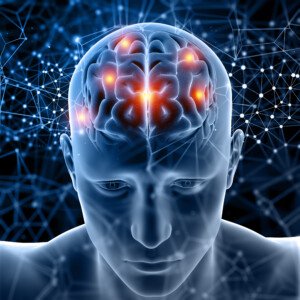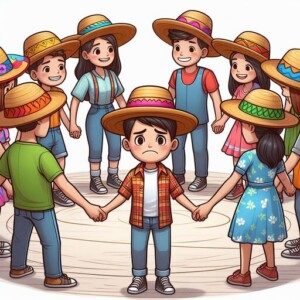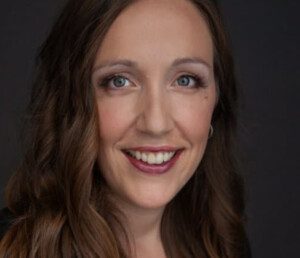How does an evaluator distinguish between the innate autistic brain and a neurotypical broken by childhood family dysfunction and lack of affection?
Which came first: the chicken or the egg? In other words, where does learned social insecurity end and autism begin?
How can an autism assessment tell the difference between a person whose brain is naturally wired differently and a person whose social skills were never developed because they shut down early in life due to being made to feel dislikeable and inadequate?
For instance, autistic people typically are poor at expressing and even feeling empathy.
But wouldn’t being raised by two non-affectionate, non-empathetic parents also possibly produce a child who lacks empathy – who grows up to be non-affectionate, “non-feeling” and rather aloof?
Suppose a boy keeps getting criticized and belittled by his father and older brother.
This damages his self-esteem, which leads to feeling awkward when trying to socialize with classmates. The classmates pick up on this and don’t want to be his friend.
He eventually tires of trying to fit in and decides to withdraw from this venture by the time he’s in junior high.
His social skills are stunted and never cultivated, and this attracts ridicule from peers.
He copes by immersing himself into solitary hobbies and dealing with people only when necessary.
Another coping strategy is to reject social norms, dance to his own beat and be blunt and direct – as he doesn’t give a hoot what people think of him.
He also prefers routine and sameness: a subconscious method of combating insecurity. This all sounds like autism.
Years later he’s diagnosed autistic. But IS he really? Or is he a broken neurotypical – the product of a brow-beating father, indifferent mother and bullying older brother?
But then … what made his father and brother harp on him in the first place?
Could it be that all along, the boy came off as quirky and odd (because he IS autistic), and this brought out the worst in his rigid-thinking father and naturally gregarious brother?
“There isn’t an easy answer to this one,” says Dr. Jessica Myszak, licensed psychologist, and director of The Help and Healing Center, whose practice is mostly autism assessment for adults.
“I think one important point is that no one grows up in a vacuum — so a person’s parents are not the only influences on a person’s behavior.
“As a psychologist, I ask clients about their school relationships and friendships over the years.
“Many adults who were late diagnosed autistic do not have great relationships with their parents for various reasons, but that can be true for both neurotypical and neurodiverse people.”
Is it autism or is it impaired self from family dysfunction?

Shutterstock/Mastaco
I began my autism diagnosis journey in the summer of 2021, and was clinically diagnosed in spring 2022.
Along the way, I have read quite a few posts – on a content site and in autism forums – written by autistic people who report having been psychologically abused in childhood by at least one parent.
Some of the accounts were chilling to read. I’d wonder, “How do we separate innate autistic brain wiring from permanent emotional damage caused by cruel parents?”
On the other hand, the different way of thinking by an autistic child could set a parent off, while the behavior of neurotypical siblings hardly phases that same parent. The autistic child gets blacklisted.
Teachers at school pick on him or her, getting “oddball vibes” that other students don’t give off.
The undiagnosed autism, then, is an attractant for verbal abuse and social exclusion, fueling the child’s perception that they’re dislikeable.
The low self-esteem then encourages social withdrawal. It’s a very nasty cycle.
Bottom line: MANY autistic people got the short end of the stick when growing up.
Dr. Myszak explains, “Differentiating between neurodiversity and trauma can get tricky, and there are many experiences and characteristics which can be attributed to either autism or trauma or both.
“This is especially complicated given the high comorbidity between autism and chronic PTSD, which can often result from a mismatch in parenting, where parents force children to endure particular situations without realizing how these situations are impacting the child in the long run.
“This is where it is really important for an evaluator to look at some of the characteristics of autism which are not typically associated with trauma, which include repetitive behaviors, difficulty reading social cues of neurotypical others, sensory sensitivities and special interests.”
Let’s pick all that apart.
Repetitive Behaviors

Freepik.com/lookstudio
This means stimming, or self-stimulatory or self-regulating behaviors. “Self-stimulatory” does NOT refer to sexually stimulating. It refers to self-regulating or self-easing repetitive motions.
Examples include rocking, swaying, shaking a foot, bouncing a leg, hand flapping or wringing, chewing on one’s sleeves or collar, tapping one’s face, teeth clicking, spinning, bouncing the knuckles together, pulling at skin, sucking on fingertips, nibbling on cuticles or chew pendants, humming, grunting, tearing paper – the sky’s the limit with stimming.
Though neurotypicals also stim, they do it only under duress (waiting in a doctor’s office for an exam) or in a fleeting way such as tapping a thigh while waiting at a red light.
Other populations who regularly stim throughout the day are those with Down syndrome and schizophrenia.
A person in a violent or highly agitated state of mind, such as from drugs, may engage in pronounced stimming.
In Autism Spectrum Disorder, stimming is a HUGE part of the Autist’s life.
I myself can’t go five minutes without some form of stimming unless I’m washing my hair or doing my monthly mole check.
A self-report of stimming in a person with lifelong social awkwardness makes a strong case for ASD.
Difficulty Reading Social Cues of NTs

Freepik.com/gpointstuio
Impaired ability to interpret nonverbal communication is an innate feature of the autistic brain.
Conversely, a good ability to read social cues is an innate feature of the neurotypical brain.
Just like a loving, supportive childhood can’t “fix” an Autistic’s incorrect way of interpreting nonverbal communication, a dysfunctional childhood can’t damage a neurotypical’s ability to accurately read social cues, either.
An NT will still be able to correctly read facial and eye expression, body language and tone of voice even if they were emotionally abused while growing up.
The broken NT may turn to drugs, battle chronic depression, develop an eating disorder, struggle to hold down jobs, gravitate towards abusive partners or become an abuser themselves – but, “at the end of the day,” their ability to read social cues will be intact.
Sensory Sensitivities

Shutterstock/fizkes
Being made to feel like crap by your mother won’t make you find certain fabrics or sounds aversive.
Being picked on by classmates all through primary school won’t make a child develop sensitivities to odors that don’t bother other people.
A dysfunctional childhood won’t lead to difficulty tuning out subtle background sounds or issues with food textures, lighting or the need to straighten or line up things.
Special Interests

Gzzz, CC BY-SA 4.0/creativecommons.org/licenses/by-sa/4.0/ Wikimedia Commons
Emotional or physical abuse in childhood won’t make the victim develop hyperfixations.
Though a damaged NT may immerse themselves in a hobby such as guitar playing or dancing to escape the pain, this isn’t the same as a special interest in autism.
The Autistic’s special interest may manifest as excessive talking about the subject, including at inappropriate times with little awareness that others aren’t interested.
Or, they may figure others aren’t interested but need to “info dump” because they’re so excited about the interest.
The interest itself is often considered strange or weird, such as a fascination with hurricane bands, collecting empty plastic bottles, dog tails that curl up, window shades, designs on playing cards and church floor tiles.
Often, a special interest is circumscribed or narrowed, meaning, a smaller part of a whole – such as those dog tails or designs on playing cards: The autistic person has no otherwise interest in dogs or actually playing cards.
The autistic mind will spend a lot of time thinking about the interest, imagining numerous scenarios involving it.
They typically want to learn all they can about their beloved subject and may even be experts in it.
Feeling Alien to Other Humans

NBC
A neurotypical may have survived an emotionally rancid childhood yet still feel like they belong among our species and understand people well.
But since early in life, an autistic person feels out of place, mismatched with humans, “different” and out-of-synch, unable to figure people out.
Sure, being picked on and harassed throughout childhood will taint one’s self-perception – whether they’re autistic or NT – and this maiming will create issues that are superimposed on the autism such as low self-esteem, social anxiety or unwillingness to socialize, and perhaps impair even more their ability to feel or express empathy.
Literal Thinking

Freepik.com/kjpargeter
Feeling riddled with holes by bedtime, courtesy of being treated harshly by a parent, isn’t going to make you tend towards literal thinking.
This is a feature in autism and can display in different ways – not necessarily a difficulty understanding figures of speech or jokes.
For example, a young autistic mind might think that “liquid assets” means a fluid-like form of money such as liquid gold; have difficulty understanding what a gun magazine is; or think that the field of animal husbandry relates to marriage.
An NT with the lowest self-worth in the world will still detect sarcasm, kidding around and not be accused of “taking things so literally all the time.”
Dr. Myszak explains, “Since we don’t have a crystal ball and have to do the best with the information we can currently see, we have to look at the functional impact on a behavior.
“A person’s characteristics actually influence what they are doing. If someone has experienced trauma but it does not impact their day-to day-functioning, they don’t meet criteria for PTSD.
“Similarly, if a neurodiverse person doesn’t have any noticeable differences in behavior or experience, it can be nearly impossible to diagnose autism, even if they resonate with much of the information shared by other autistic people.”
The ADOS (autism observational diagnostic scale, administered during autism assessments) is one tool that is designed to help differentiate between learned behavior/feelings in a broken neurotypical person and the different way of thinking and seeing the world in an autistic person.
Dr. Jessica Myszak, a psychologist who specializes in autism assessment for both children and adults, is the founder of Autistic Support Network. She sees clients in-person in the Chicago area and over telehealth in 31 states. Learn more about her practice at helpandhealingcenter.com.
 Lorra Garrick has been covering medical and fitness topics for many years, having written thousands of articles for print magazines and websites, including as a ghostwriter. She’s also a former ACE-certified personal trainer. In 2022 she received a diagnosis of Level 1 Autism Spectrum Disorder.
Lorra Garrick has been covering medical and fitness topics for many years, having written thousands of articles for print magazines and websites, including as a ghostwriter. She’s also a former ACE-certified personal trainer. In 2022 she received a diagnosis of Level 1 Autism Spectrum Disorder.
.




























